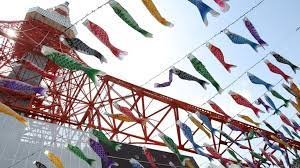Chronos, Kairos and Aion are the three deities of time, events and epic destinies. Here is the multi-religious and multicultural calendar!
Find us on our website Mythology and Legend, on Facebook and on instagram !

The schedule in brief from D-2 to D+5
- April 8, 2025, : Hana Matsuri
The complete interactive calendar
Holidays of the month
April 1, 2025 (1 event)
April 1, 2025

Today, in Kyoto, Japan, Miyako Odori takes place for a month. The dances, songs and theatrical productions presented as part of the Miyako Odori are performed by the maiko (apprentice geisha) and geisha of the Gion district. #mythology #myth #legend #calendar #April #gion #kyoto #japan #MiyakoOdori
April 8, 2025 (1 event)
April 8, 2025

Today, the Japanese celebrate Hana Matsuri. Originally Buddha's birthday, it has also become synonymous with the arrival of spring and an opportunity to pray for the health of young children. #mythology #myth #legend #calendar #8April #Buddha #hanamatsuri #Japan
April 14, 2025 (1 event)
April 14, 2025

Today, the Japanese begin the Takayama festivals of Gifu. The Takayama Spring Festival takes place at Hie Shrine, also known as Sanno Shrine. He is held to petition the gods for good harvests. #mythology #myth #legend #calendar #April 14 #takayama #japan
April 15, 2025 (1 event)
–
April 15, 2025
On this day, the Aztecs began the month of Huey Tozoztli, dedicated to the god Tlaloc. Tlaloc was the god of fertility (of the earth), water and good health. His kindness was essential to guarantee good harvests and avoid bad weather that could ruin them during this month. #mythology #myth #legend #calendar #12May #HueyTozoztli #Aztec #Tlaloc
April 29, 2025 (1 event)
April 29, 2025

Today, the Japanese begin Golden Week. Four public holidays take place, April 29, the birth day of Emperor Shōwa; May 3 Constitution Commemoration Day; May 4 Nature Day; May 5 children's day. #mythology #myth #legend #calendar #April 29 #GoldenWeek #Japan
Multicultural and multi-religious almanac
An almanac is a calendar showing the main dates of the calendar, the religious holidays, bearing ephemerides such as the phases of the moon or the duration of the days (lunar and solar calendars).
A calendar is a system for marking dates according to time. Such a system was invented by men to divide and organize time over long periods. The observation of the periodic phenomena of the environment in which they lived — such as the daily movement of the shadow, the return of the seasons or the lunar cycle — served as the first references for organizing the agricultural, social and religious life of societies.
The calendar used today in most of the world is the Gregorian calendar. In everyday language, an ephemeris designates what happens daily; the ephemeris of the day is the list of the significant events of this day.